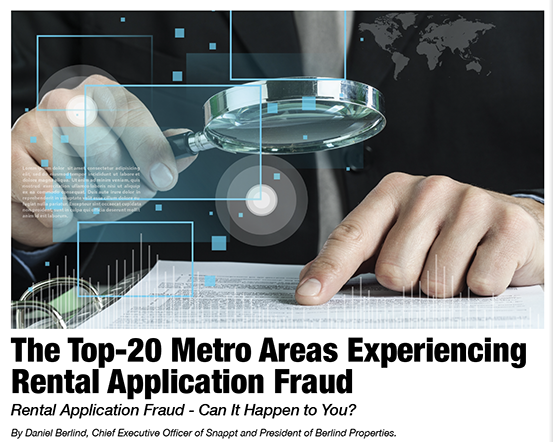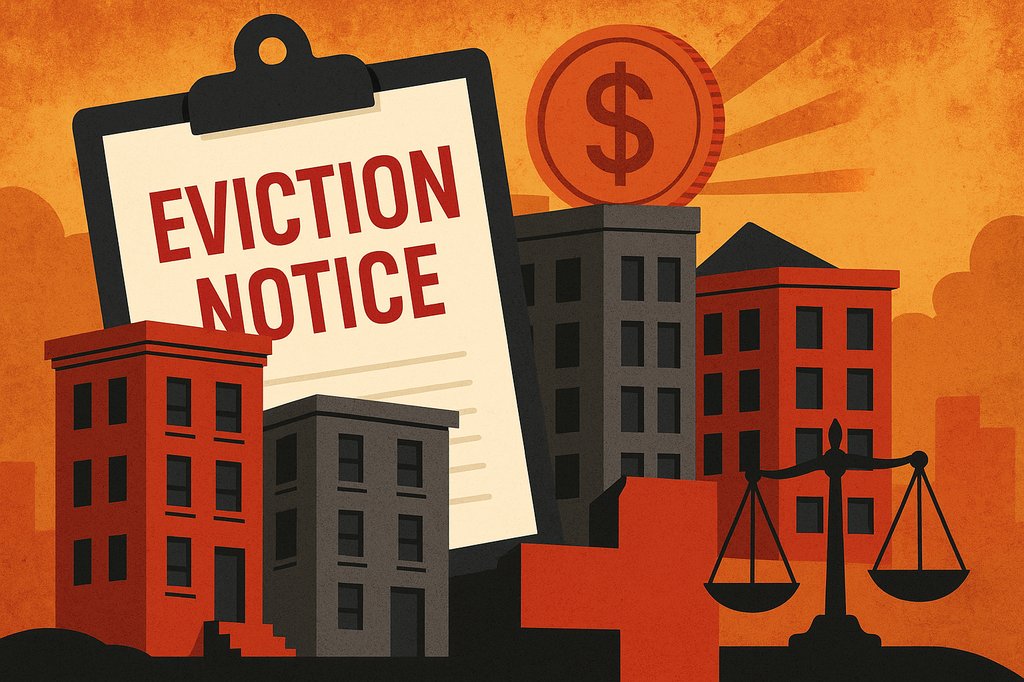The Top-20 Metro Areas Experiencing Rental Application Fraud

By Daniel Berlind, Chief Executive Officer, Snappt
Rental Application Fraud- Can It Happen to You?
During the rental application process, if you are like most property managers, you’ll ask your applicants for pay stubs, contact information, social security numbers, and bank statements. You’ll also run credit checks upfront and other verifications to vet your prospective renters. All sounds familiar. Maybe not so familiar, are a few rental application statistics that will catch your attention:
- One in eight pay stubs and bank statements applicants submit are FAKE.
- ONE in FOUR evictions had their start with fake financial documents.
- Last year, fraudsters submitted more than TEN MILLION fake financial documents.
- That works out to 1,250 fake documents PER HOUR.
It’s called “application fraud,” and with evictions costing upwards of $7,500, this is a risk you must control.
Top-20 Metros: Snappt’s “Treacherous Twenty”
Real Estate and rental application fraud is rampant, but some areas have more scammers than others. Today, Snappt is releasing the “Treacherous Twenty,” the list of the top 20 major metropolitan areas by application fraud rate. Snappt has scanned more than 1.5 million pay stubs and bank statements, and we’ve recently compiled this list to alert property managers to where the biggest risks lie.
SNAPT 1
Note that the eviction rates – which are often driven by rental property application fraud – ran as high as 1 in 9 for the “treacherous twenty.” The average eviction rate was 4.83%, nearly double the national average of 2.6%. In Atlanta, property managers see fake paystubs or bank statements for every 5th or 6th applicant! Houston and Dallas were not far behind. We aggregated this into the major regions of the US to find the following:
SNAPT 2
Drivers of Application Fraud
There are many drivers of rental application fraud, but rent increases and unemployment stick out. Many of the “treacherous twenty” show extreme movement along these drivers.
- Increasing Rent. Higher rents make it more challenging to qualify. This in turn causes more potential tenants to resort to application fraud. We are seeing annual rent increases as high as 29.5% in our list (Tampa/ St. Petersburg). In fact, nearly half showed double-digit rent increases in 2022. With the steadily climbing price point of apartments, we can expect low prices to be a thing of the past for a while.
- Unemployment. Unemployment makes it impossible to qualify for an apartment. This drives applicants to fraudulently alter bank statements and paystubs. Unemployment rates were as high as 5.7% on our list, well above the national average of 3.8%. In fact, half of the metro areas on our list have unemployment rates at or above the national average.
My City Isn’t on the List. Am I Safe?
Didn’t make the list? Congratulations! But are you safe? Let’s do the math…Let’s start with your fraud rate. The average application fraud rate for major metro areas that didn’t make the list was 3.6%. Next, assume you have 250 units. A typical client sees perhaps 150 units come up for rent each year. At a 3.6% fraud rate, that means you’ll receive 5 to 6 fraudulent applications. Will you be able to spot these? Probably not – they are virtually invisible to the naked eye.
So now you have five potential bad tenants in your building. Nationally, it costs $7,500 to evict someone (legal fees, lost rent, damage, etc.), but that amount is far greater in California. So, your exposure is 5 times $7,500 equals $37,500. So, are you safe? Well, $37,500 per year is a significant number.
Snappt, a Los Angeles based real estate technology company, provides a quick and inexpensive data-driven fraud detection service that can accurately spot fraudulent documentation. Snappt is used by four of the top five property management firms in the U.S.








